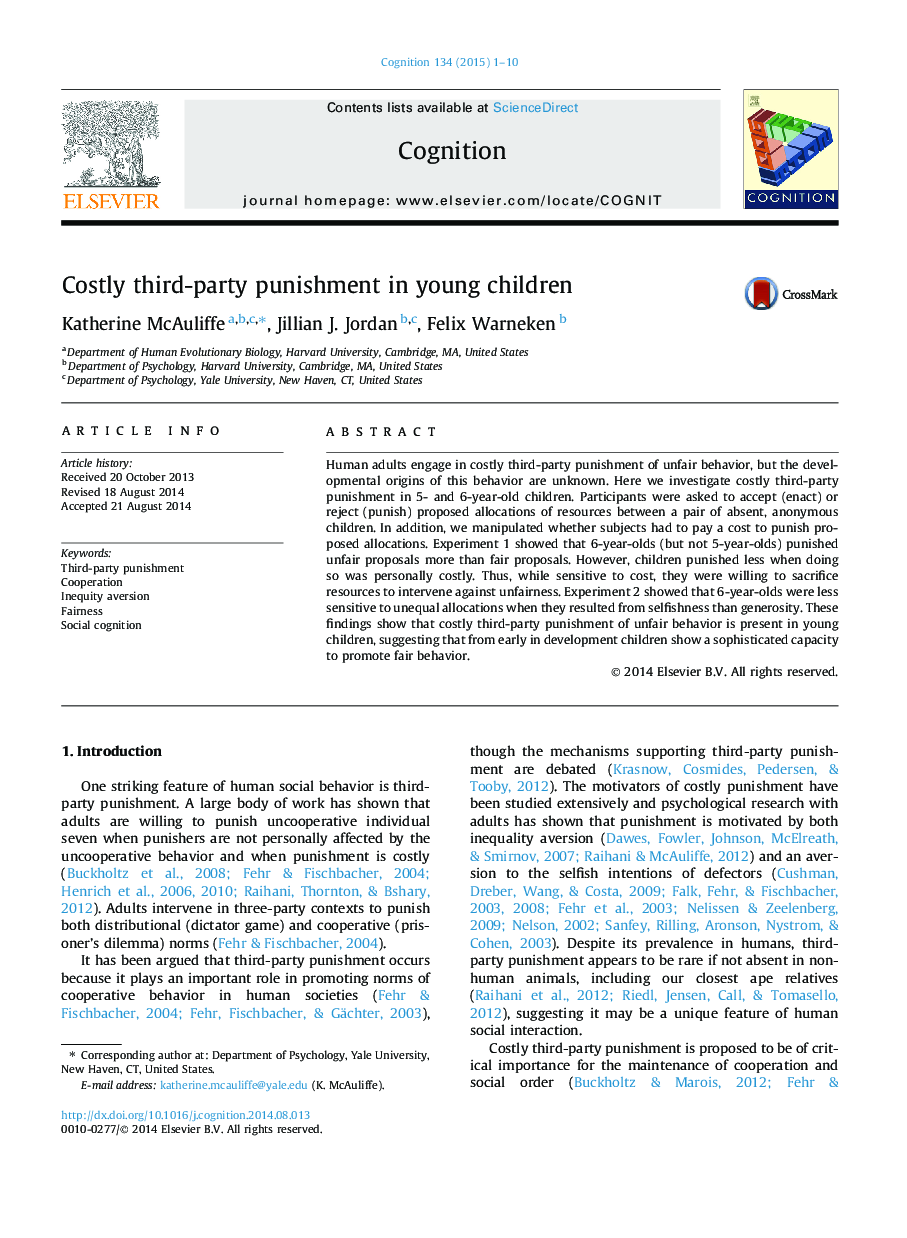| Article ID | Journal | Published Year | Pages | File Type |
|---|---|---|---|---|
| 7287507 | Cognition | 2015 | 10 Pages |
Abstract
Human adults engage in costly third-party punishment of unfair behavior, but the developmental origins of this behavior are unknown. Here we investigate costly third-party punishment in 5- and 6-year-old children. Participants were asked to accept (enact) or reject (punish) proposed allocations of resources between a pair of absent, anonymous children. In addition, we manipulated whether subjects had to pay a cost to punish proposed allocations. Experiment 1 showed that 6-year-olds (but not 5-year-olds) punished unfair proposals more than fair proposals. However, children punished less when doing so was personally costly. Thus, while sensitive to cost, they were willing to sacrifice resources to intervene against unfairness. Experiment 2 showed that 6-year-olds were less sensitive to unequal allocations when they resulted from selfishness than generosity. These findings show that costly third-party punishment of unfair behavior is present in young children, suggesting that from early in development children show a sophisticated capacity to promote fair behavior.
Related Topics
Life Sciences
Neuroscience
Cognitive Neuroscience
Authors
Katherine McAuliffe, Jillian J. Jordan, Felix Warneken,
